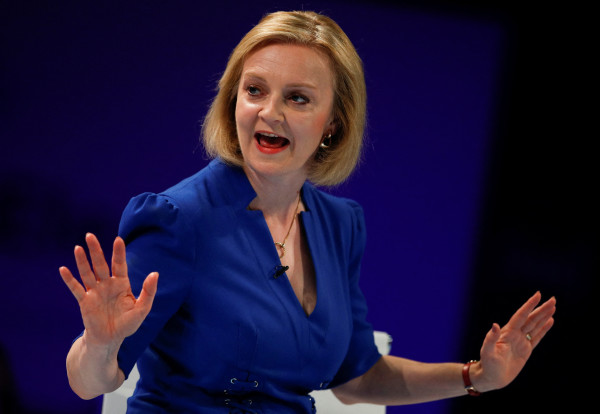

Although the result has yet to be announced, figures are showing that the foreign secretary has a clear lead ahead of the other remaining candidate, former chancellor Rishi Sunak.
A recent opinion poll put Truss 32 points ahead of Sunak to be the next Tory leader and prime minister.
So what can advisers expect if Truss is named Prime Minister on September 6?
IR35 reforms
Truss said she believes the current IR35 tax rules are unfair as they force the self-employed to pay too much.
The reform was introduced in April 2021 to the private sector, and means that the responsibility for assessing whether a contractor is self-employed or employed is now with the end client, and not the contractor themselves.
The liability, and therefore financial risk, was also transferred to the fee-paying party.
The changes have been branded “a mess”, “unpopular” and “puzzling”.
In an interview with The Sun on Sunday newspaper last weekend (August 21), Truss said she wanted to usher in a “small business and self-employed revolution” because they are “the future of our economy”, though she has not given any more details on how she would change the tax.
Dave Chaplin, CEO of tax compliance firm IR35 Shield said: “Whilst it is good to hear that Liz Truss intends to focus on IR35 as part of her vow to help small businesses should she become our next prime minister, my message to her is loud and clear: we don’t need another review, we need action.
"The so-called reforms are a flawed botch and have simply served to strangle contractors and those businesses which hire them. IR35 is an iron shackle, impeding flexible workers who can help deliver growth just when the UK economy and UK plc need them. The time to act is now."
Pensions/triple lock
The triple lock is the mechanism by which the state pension is decided. Under the triple lock, pensions increase by the highest of earnings growth, price inflation or 2.5 per cent a year.
The government temporarily suspended the wages element of the pensions triple lock for 2022-23 to avoid a disproportionate rise of the state pension following the pandemic.
Sunak confirmed the return of the triple lock in May, and Truss has since said she is “fully committed” to the lock.
At a hustings event last month, Truss said she will raise pensions next year by 9-10 per cent.
There may well be more news coming, focused on those who are most vulnerable and least able to cope with rising costs, said Sarah Coles, senior personal finance analyst at Hargreaves Lansdown.
"However, we just don’t know," she added.
"If we have to wait for an emergency Budget well into September to find out, it means weeks of desperate worry and uncertainty on top of everything else.”
Corporation tax
Corporation tax policy has been a dividing line in the contest, with Truss ruling out a change in the tax, despite Sunak pledging to increase it from 19 to 25 per cent from 2023 when he was chancellor.
The 2016 budget announced corporation tax in 2020 will be reduced to 17 per cent, however before the pandemic it was announced that it will be held at 19 per cent.
Business leaders have hit out at the potential rise, saying it is a tax levied on profits at a time when many companies are facing recession.
Social care levy
Another of Truss's headline policy promises is to scrap the social care levy.
The levy was introduced in April this year to pay for reforms to the UK’s social care system, and is a 1.25 percentage point increase on national insurance.
If left in tact, the tax would raise £12bn a year.
It is currently appearing on payslips as part of employees’ national insurance contributions, with the plan that from April 2023 it will be separated out in a separate line at the same amount.
However, Truss is reportedly considering scrapping the levy as soon as she enters office.
Head of retirement policy at AJ Bell, Tom Selby, said this “helping hand” will be dwarfed by soaring energy costs over the next few months.
“The move also calls into question how the planned social care reforms, which include a cap on lifetime costs, will be funded,” he said.
“While the idea of a hypothecated tax is of course a nonsense in reality – all tax and NI goes into the same pot – Truss will be forced to explain how social care reforms will be funded in light of the decision to scrap the hike.”
Green levy, energy bills
Consumers currently pay around £150 per year per household on environmental and social levies, which Truss has said she will scrap on taking up office.
However, this help will “barely touch the sides” of the high energy prices the UK is set to face this winter, said head of personal finance at AJ Bell, Laura Suter.
“Truss originally said she’d rely on tax cuts to help people through the awful winter ahead, but it now feels inevitable that she’ll have to announce additional support to extend the current cost of living handouts.”
sally.hickey@ft.com



